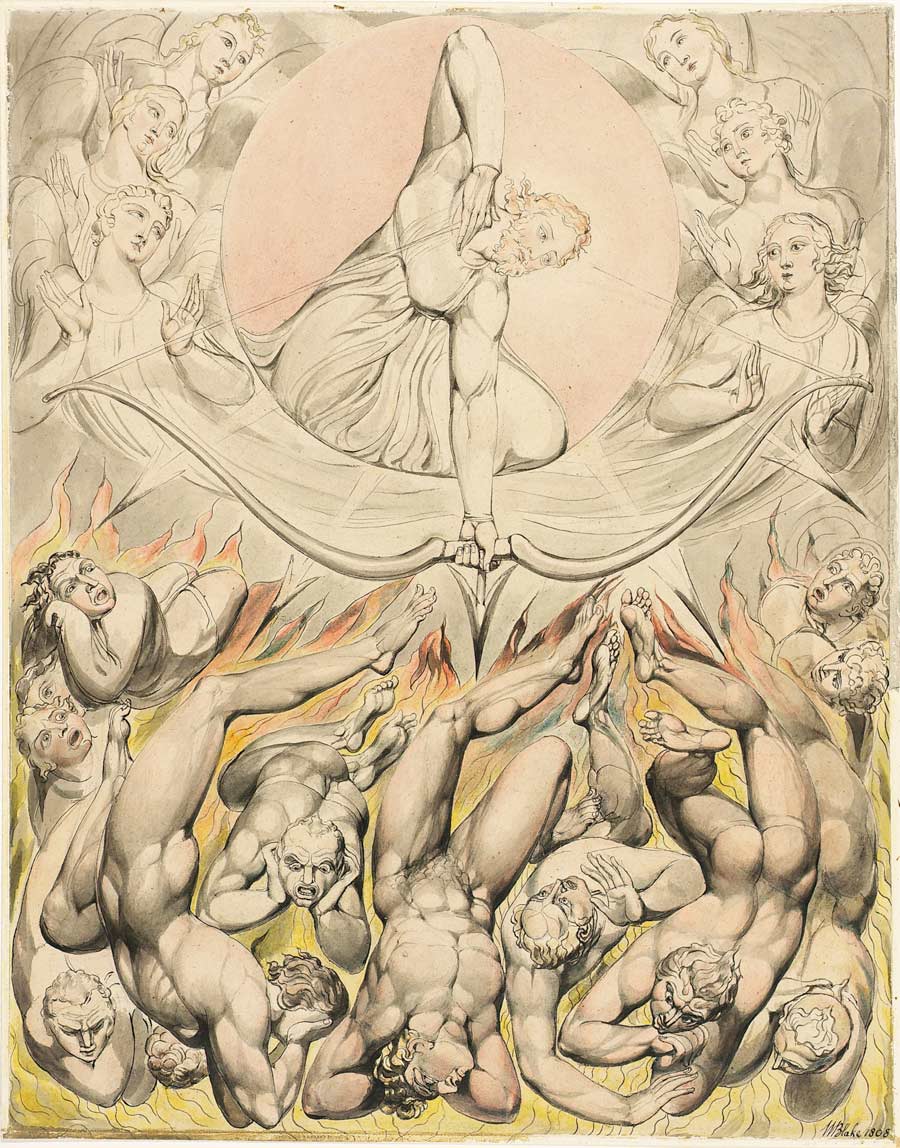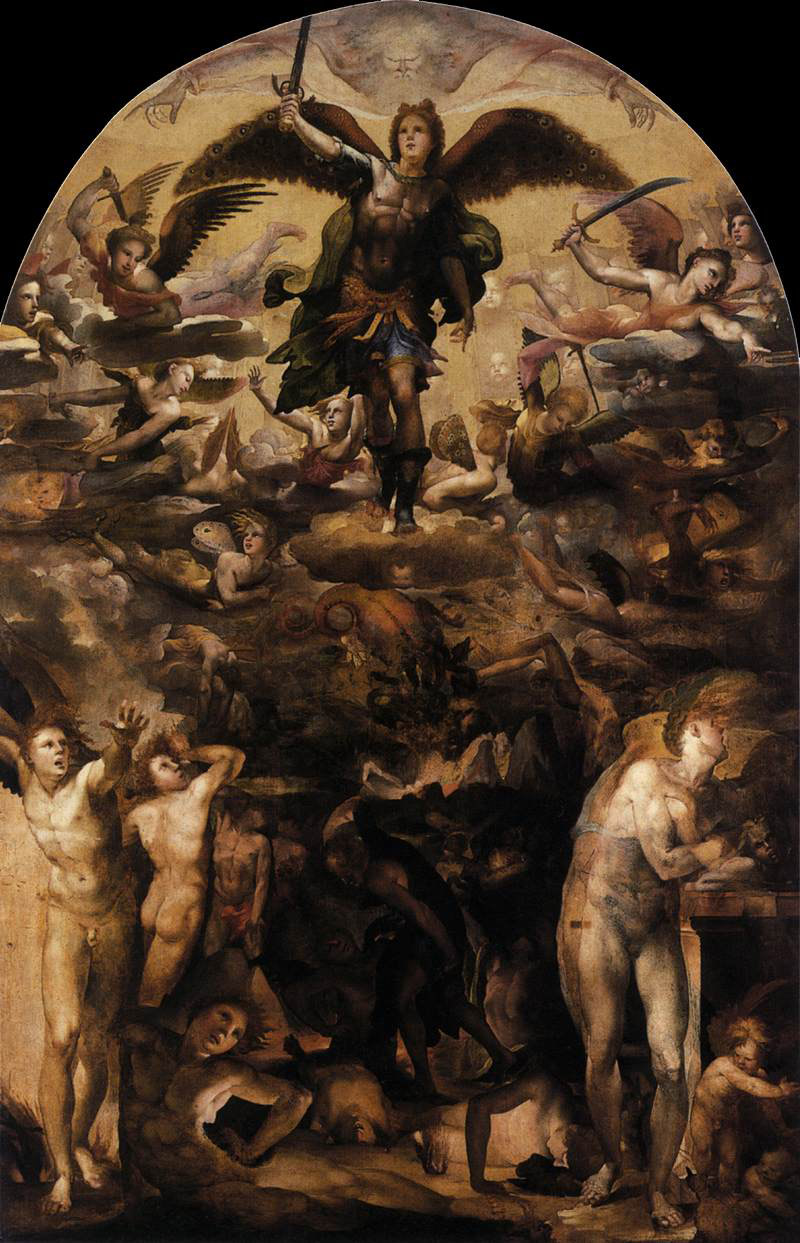I’m as yet trying to get a handle on how exactly this thing called “time” works, at least in relation to what I label “Eternity”. I have stated before that since the War in Heaven is a war in eternity, the primordial Fall of the Dragon and his rebel angels is one and the same as the eschatological Fall that is a sign of the Apocalypse. (Wow, a lot of capitalized words. I better have a point.) It is part of doctrine that Jesus Christ defeated Satan once and for all when he died on the cross. Yes, but we did not stop fighting Satan at that point. One of the mottoes of the Church might be, “eternal vigilance”. Always to be on guard against Satan and his minions. Was it because, perhaps, it was that the Crucifixion and subsequent Resurrection were actually to defeat the Devil in Eternity, while things still play out in time, while we are in this mortal coil?
Let us say that the universe is made of words. And that each angel were responsible for one of those words. Since they were blameless before iniquity were found in them, let us say that all of the rebel angels, they were also each responsible for a word: these were the point of contention between the good and the evil, that the meanings of these words were not corrupted to a state that would make them unrecognizable. For at any of these breaches could the derangement propagate. This is not an exact description as to what exactly happened during the War, but it is close enough to understand just how things may work. Philip K. Dick remarked that the universe was made of information: what if the metainformation, how this world’s strata forms as information, what if that were like the “words” just mentioned? Words that governed other words…
Now, within that “words” model: what if the universe were a grand story, composed of smaller stories? What if the only rule, really, in how it all works in the grand scheme, is that “the best story wins”? Maybe not at any given time that the story were being told, that things could not be “better”—this is the fallacy of personalization: if it’s not good for me, it’s not good. But what if, by the grandest wisdom, what if everything that ever was, put together, were the greatest story that could be told? Once again, not because nothing bad happens; in fact sometimes because something bad happened. If that is the case, then maybe we really do live in the best of all possible worlds. Ain’t that a kick? And since we are still going, this grand story is still being written, by you and me, and whatever forces are at work here or in Eternity.
How much did the fallen ones affect the universe? It is easier to do evil than to do good. People don’t (a lot of times) get what they deserve. Bad things happen to good people. Wherever you see it is not as it should be, this is of the damage done to the happening of creation. Though there was no break in the ultimate logic of all things, there were definitely places where there was warping. And then sometimes, you can see God’s hand counterbalancing the dementia, where it is almost obvious that the antiprovidence were turned about, and things worked out better than if the wrong had not happened at all. You’ve seen stories, surely, of the serendipity? Death and pain put to fruitful ends. Evil ultimately defeated by a love that would not have been so had there not been any evil at all.
As far as “time” goes, I still see sometimes things from before the casting of Satan from Heaven. I am told that even if it is clear in the Halospace that we, the good guys, won, Lucifer from before the Fall merely assumes that this is a reality that he did not choose to instantiate (solidify); which unfortunately for him is a wrong assessment. How the things I see reconcile in Eternity, I seem to have some feel for it. They, the ones in the Halospace, must expend some of their precious time to do anything, especially if that is to interact with the “real world”. It used not to be a big deal for them there, but after the Fall, it is written that Satan was filled with wrath, for he knew that his time was short. The fallen angels: the words they were entrusted with were taken away. They no longer possess anything of Eternity. Trapped in time, all of them are, to await the end that surely comes.


